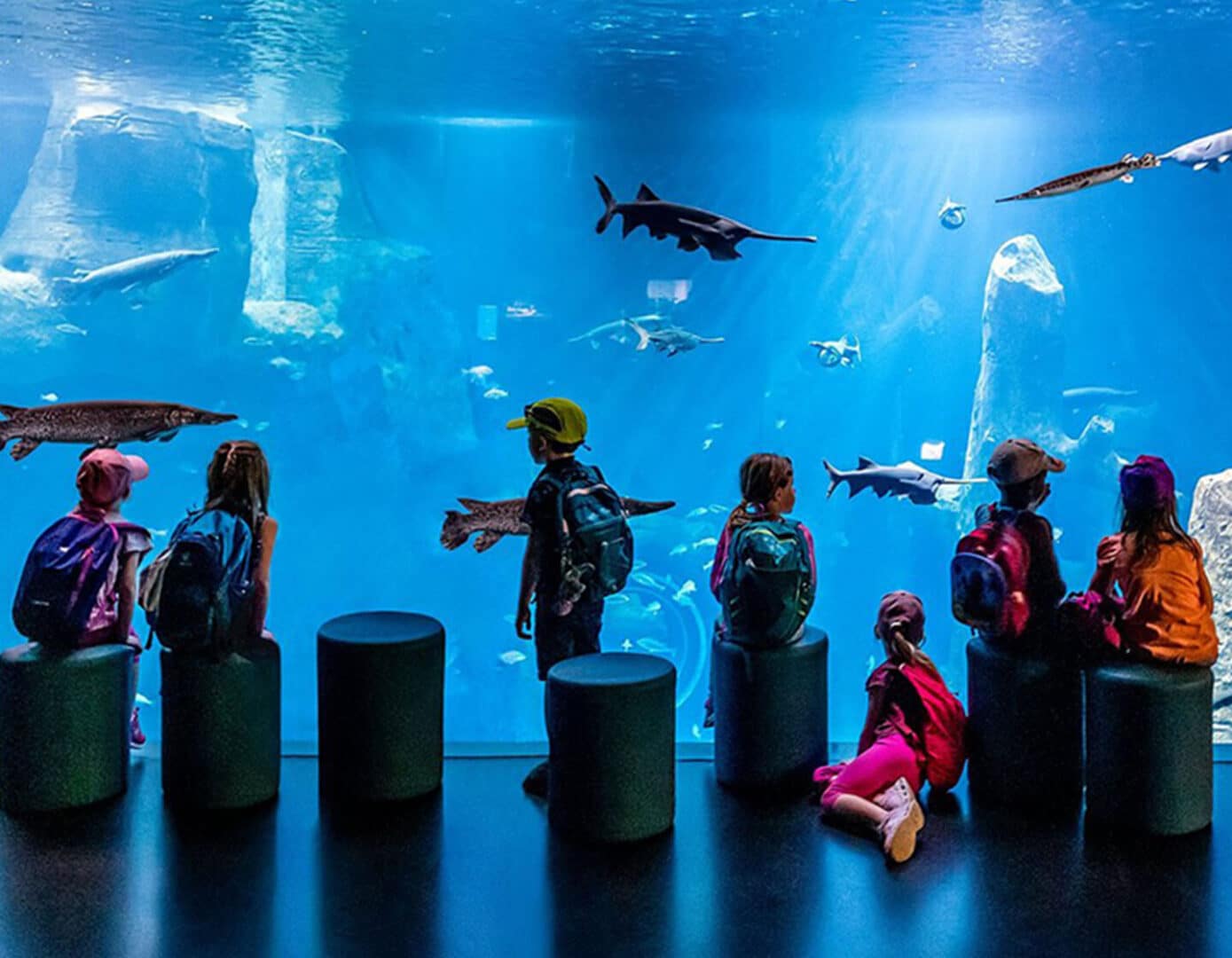
As organizations move to more environmentally friendly products and processes, sustainability has changed from an afterthought to a key driver of innovation.
Recognizing the importance of this intertwining, the Association to Advance Collegiate Schools of Business (AACSB) has named the IMD MBA Innovation Week one of its . The AACSB recognizes institutions from around the world that serve as champions of change in the business education landscape. Now in its sixth year, the Innovations That Inspire highlights business school initiatives that make a positive societal impact.
The IMD MBA Innovation Week, organized with the Inartis Foundation, has indeed made a profound impact on society, both in the environmental and cultural realms. It aimed to improve the visitor experience at Lausanne’s top attraction – and Europe’s largest freshwater aquarium-vivarium – Aquatis, and increase revenues with tech, traffic controls and engagement.
The experiential approach
While many MBA programs, including IMD, use case studies and lectures in their curricula, more and more academic institutions are expanding experiential components. Team challenges, field work, simulations and competitions like the IMD MBA Innovation Week all stimulate participants in ways that traditional learning activities do not.
Professor Bouquet leads the week-long competition. An innovation expert, he has been widely recognized for his unique method for problem-solving, which he explores in detail in his award-winning book, A.L.I.E.N. Thinking – The Unconventional Path to Breakthrough Ideas.
“For participants like ours – many of whom have a strong entrepreneurial spirit – this project is an ideal foray into innovation,” said Bouquet. “But even generalists and those more suited to traditional management can learn a lot from this experience.”
Aquatis Innovation Challenge
With lagging visitor numbers and a COVID-induced shutdown as a new variable to contend with, Aquatis turned to IMD’s MBA Class of 2020 to generate a winning strategy.
The IMD MBA Innovation Week comprised six full days of programming, including sessions on creating high-performance teams, activating a design mindset, turning ideas into winning models and engaging audiences with storytelling, amongst others.
The participants spent time at Inartis Foundation’s innovation atelier, where they prototyped and tested their concepts to demonstrate the desirability, feasibility and viability of the ideas that emerged, and learned to pitch them to mobilize support and attract investors.
Eighteen groups presented their ideas; three teams were declared winners. One of these earned a special nomination with its proposal for how to better include physically challenged visitors. Two other winning pitches were lauded for the intriguing stories behind their innovative ideas, including two in the “edutainment” area – one of which was a three-pronged plan to engage customers with an interactive treasure hunt.
The Aquatis Innovation Challenge was unique in the fact that it saw newfound collaboration with HEC Lausanne/UNIL students as it joined the inaugural activities of the revolutionary science- and tech-focused E4S (Enterprise for Society) project. This academic collaboration by IMD, the University of Lausanne (UNIL) and the EPFL (Ecole Polytechnique Fédérale de Lausanne) aims to activate change by strengthening the local start-up and innovation ecosystem and train the next generation of leaders by offering a master’s degree in Sustainable Management and Technology beginning in 2021.
“The Aquatis Innovation Challenge was a fantastic opportunity for our students to work together on a meaningful project for the Lausanne area,” said Jean-Philippe Bonardi, Dean of HEC Lausanne. “It is a great testimonial for what our institutions will be able to do jointly in the context of our new E4S Center.”
A new future for Aquatis
While Aquatis was presented with ideas that would never have crossed their radar otherwise and was clear about the strategic direction it wanted to move toward, the long pandemic-related closure threw a wrench in the plans.
In spring 2020, Aquatis had undergone a restructuring with a new director and new customer-focused orientation. According to Michel Ansermet, Director, Aquatis: “The event with IMD supported the direction we wanted to go in. It also persuaded our head office that to truly make an impact, we have to deviate from outdated views and head in a new direction.”
Aquatis is currently closed to the public due to federal and cantonal COVID-19 restrictions for zoos. Yet the aquarium-vivarium has developed a detailed masterplan and already begun the first new additions to its exhibition – those that were possible in light of the current budget.
“Due to the lack of visitors, which are our main source of funding, bigger investments are suspended,” said Ansermet. “The best ideas and projects presented by IMD are therefore on hold but might be re-considered in the future.”
Aquatis opened to great fanfare in 2017 as Europe’s largest freshwater aquarium-vivarium with over 10000 species. With its new masterplan in place, greater emphasis will be placed on the conservation of threatened species and raising public awareness, firmly securing its place as local cultural and scientific institution.


